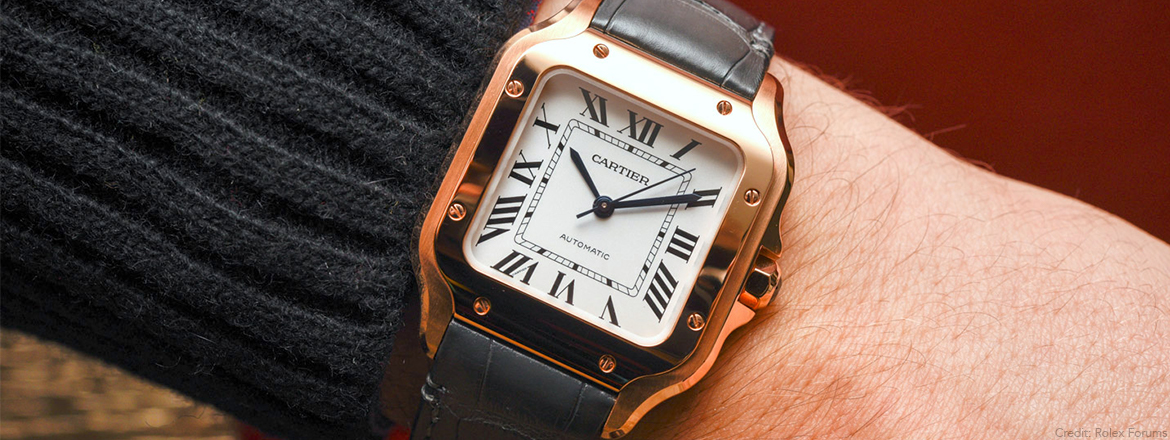New Watch! • 14 Dec 2015
Cartier Santos – Flying Above Watchmaking For A Century
It was one of the very first wristwatches on the wrist, and in the air. The Santos de Cartier embodies the iconic watch, the instrument for professional, almost a century before “iconic” entered the lexicon of horology and before the famous motto became Breitling’s tagline.
The men
The Santos was named after the famous Brazilian aviation pioneer Alberto Santos-Dumont. Even though he was born and died in Brazil, he spent most of his life in France. That’s where he met Louis Cartier, who became a lifetime friend. Perhaps what brought the two men together was their pioneering spirit: while Alberto Santos-Dumont built hot air balloons and early dirigibles, Louis Cartier created a watch that was decades ahead of his time.
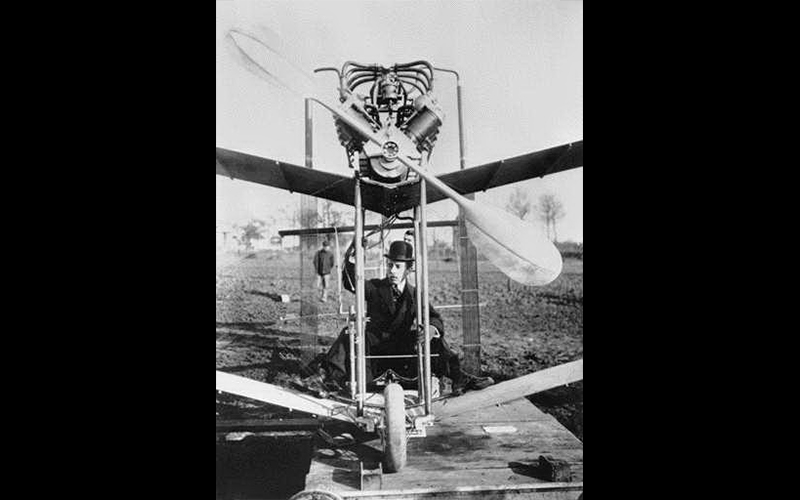
The timepiece
The watch was a unique creation by Cartier specifically for his friend. It had one goal: to be readable while in the air. That was the only request from Santos but Cartier went beyond the traditional pocket watches of this early 20th century, he made a watch for his friend’s wrist, that is to say, one of the first wristwatches. The Santos is by no means the first wristwatch ever, but one of the very first.
The design of the Santos also deserves attention, namely its bezel with visible screws. It was introduced in 1904, exactly 68 years before a well-known designer, Gerald Genta, made this feature fashionable with a timepiece called the Royal Oak.
As for the movement of the watch, Louis Cartier asked Edmond Jaeger to provide him with a calibre of his own. The partnership was not a one-off collaboration, Jaeger was Cartier’s first supplier of watch calibres, not only for the Santos but also for the rest of his creations.
Last but not least, the Santos had a square dial in a tonneau-octagon case. That might be the most accurate description of the original 1904 piece but, however, it was more a modern art sculpture than a true watch, according to conservative standards of the 1900s.
The design of the Santos laid the foundation of Cartier’s watchmaking style, what was labelled decades later the “shape within the shape”, (la forme dans la forme in its original French). Subsequent timeless designs like the Tortue, Rotonde, Tank and Clé all adhere to this double-shape design principle that still stands as Cartier’s key aesthetic signature.
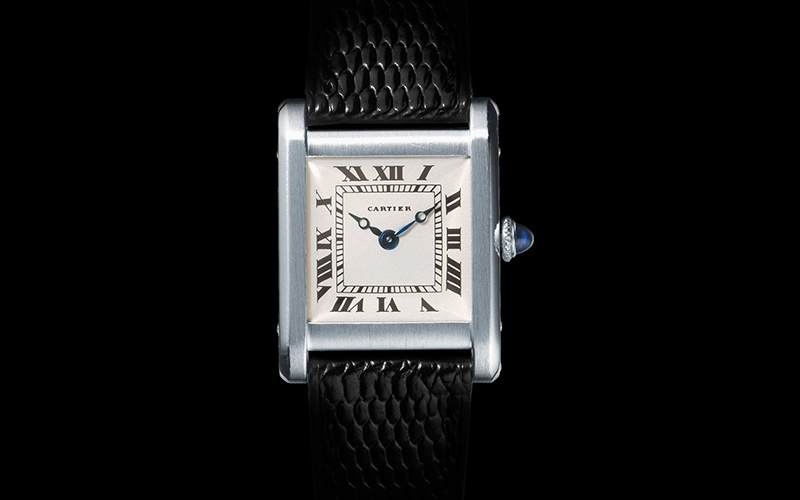
The evolution
The Santos timepiece has had four different lives. After its inception, the second generation one was produced from 1908 to 1915. During the first seven years, several watch enthusiasts expressed the desire to have their own Santos, but the piece was a one-off one at the time, Alberto Santos-Dumont being a trend-setting dandy of the era. Cartier nonetheless accepted more orders and produced a few Santos for some collectors.
Then, demand grew and Cartier began in the 1910s serial production of the Santos. Almost 800 Santos were made in the subsequent 60 years, until production ended in 1973.
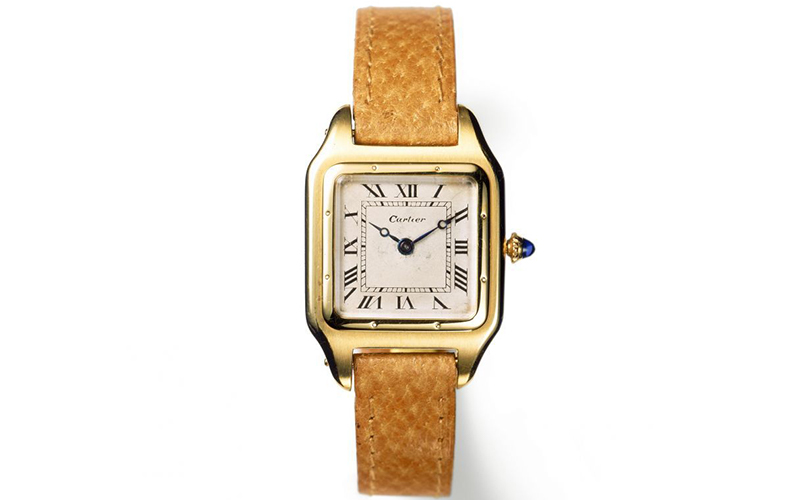
The modern days
The Santos got a new lease of life in the 1980s with the Les Must de Cartier Santos that featured a bracelet with matching screws. Several versions were introduced, including a steel and gold version in 1978, a watch that would become one of the signature watches of the decade. Then came an extra-thin model, a quartz version in 1981, and followed in 1988 by the first complicated Santos featuring a quartz moon phase movement. The Santos was so popular even Gordon Gekko had one on his wrist in Wall Street.
In 2004, Cartier celebrated the 100th anniversary of the Santos, unveiling a Demoiselle version for ladies. Three years later, the brand created the Santos 100, featuring an extra-large 42 mm case. Today, Cartier also has a high horology version of its classic, the Santos Dumont Skeleton, powered by the open-worked calibre 9611 MC, which has the open-worked baseplate forming the numerals of the dial.
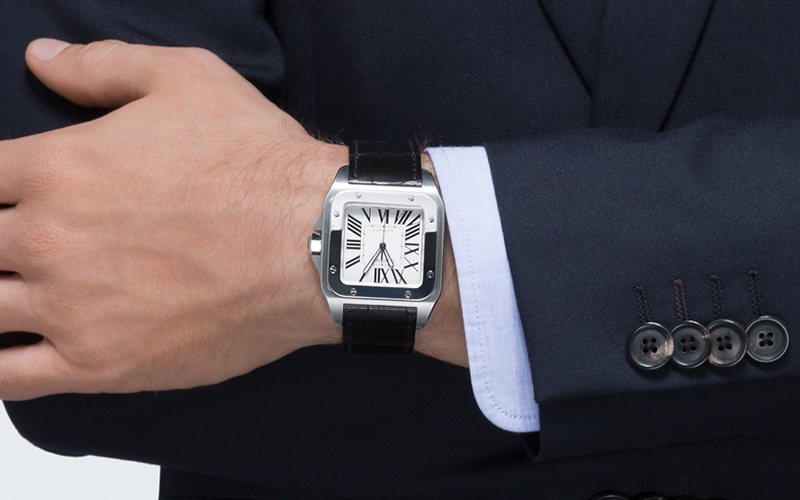
The Hour Glass is an official retailer of Cartier Timepieces.



